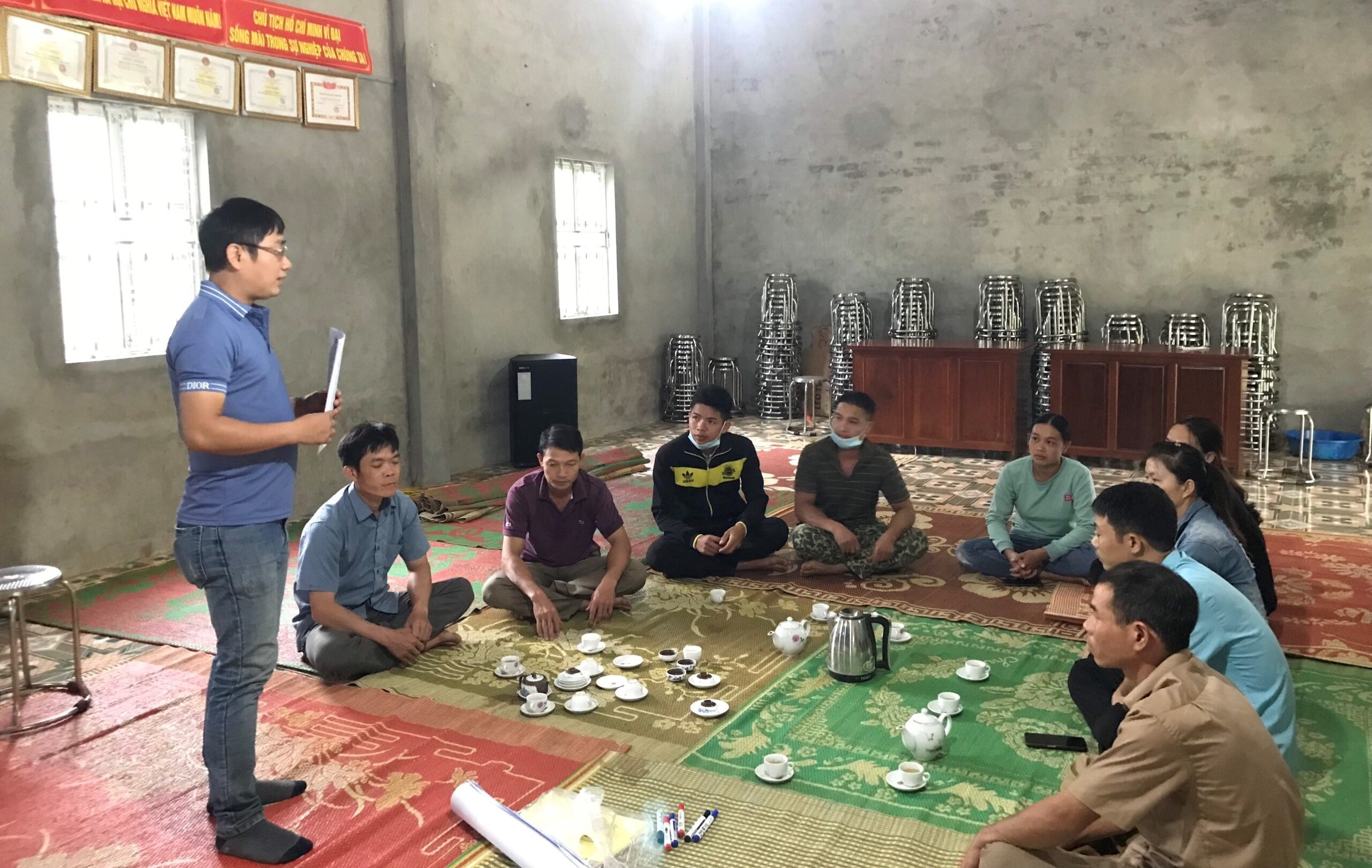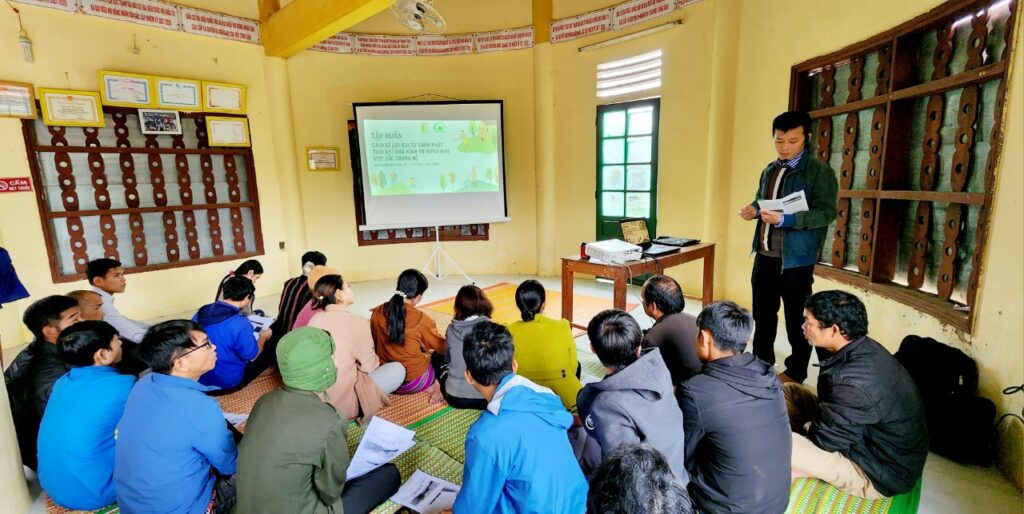People and Nature Reconciliation (PanNature) is proud to announce the…
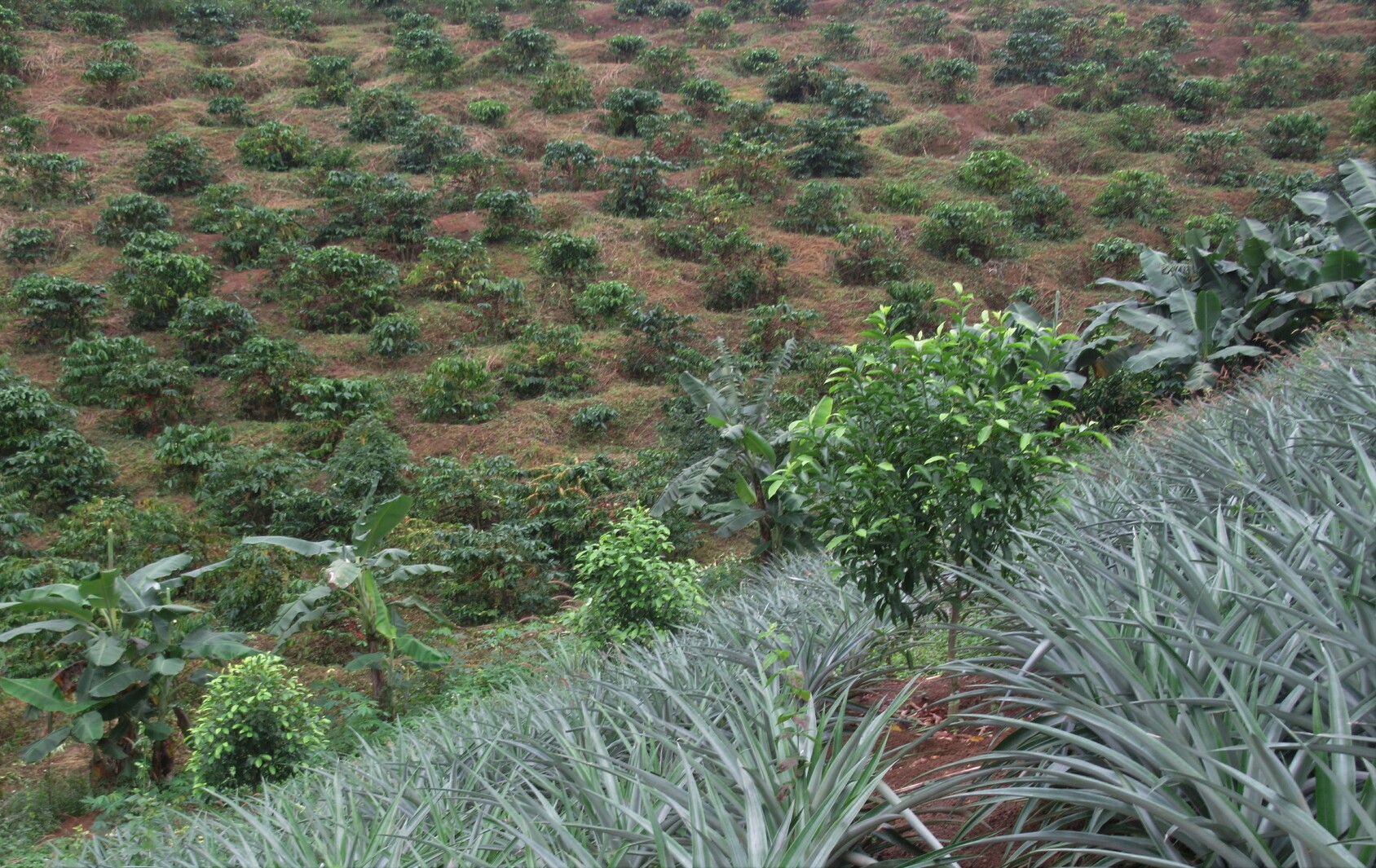
Agroforestry Helps to Secure Land Tenure in Dak Lak Province
Yang Mao commune has 1,178 households with 5,459 residents living in 11 villages. Indigenous M’Nong people account for about 90.47 percent of the population. The poverty rate is 45 percent.
With support from the Region Mekong Land Governance Project, since 2021, PanNature has carried out initiatives in Yang Mao commune, concentrating on the implementation of agroforestry models with the goal of enhancing the overall well-being of the local community. Accordingly, the agroforestry model has been piloted by 5 households in Tul Village and 6 households in Hang Nam Village to improve the local livelihood through effective farming. Cultivation land in both villages is significant on sloping land, which is being degraded with erosion of topsoil on rainy days. Agroforestry is seen as an important measure to help conserve the topsoil while improving local livelihood, reduce the risk of losing their allocated forests due to inefficient use, and contribute to securing the allocated rights.
The agroforestry model aims to introduce effective farming methods suitable to the Yang Mao commune’s topographic and soil conditions, contributing to limiting erosion, increasing forest coverage, and improving local livelihoods. As a result, the link between the community, the land, and its resources will be enhanced.
- The agroforestry model on sloping terrain is developed, carried out, and replicated.
- 11 pilot households’ income is improved.
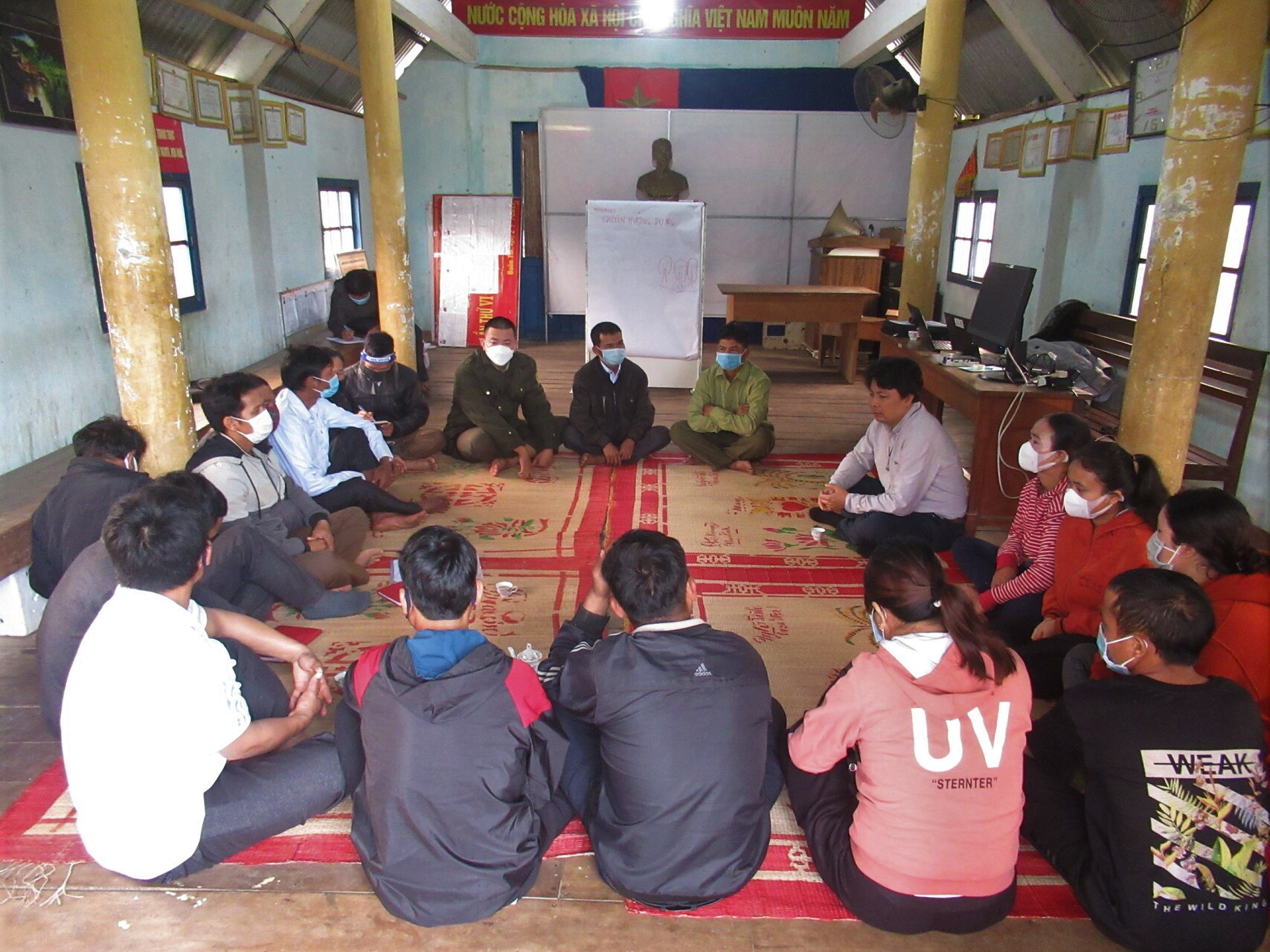
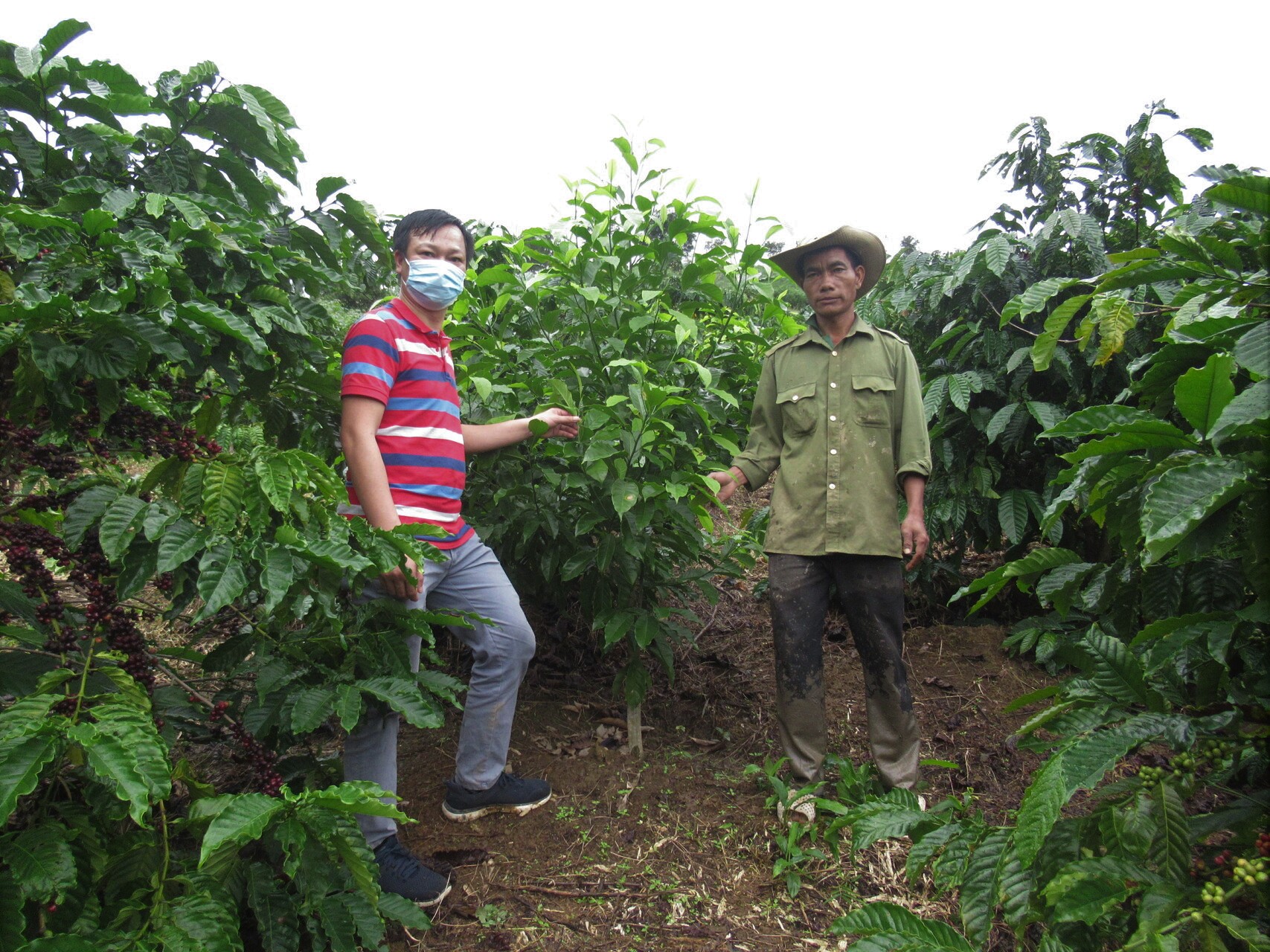
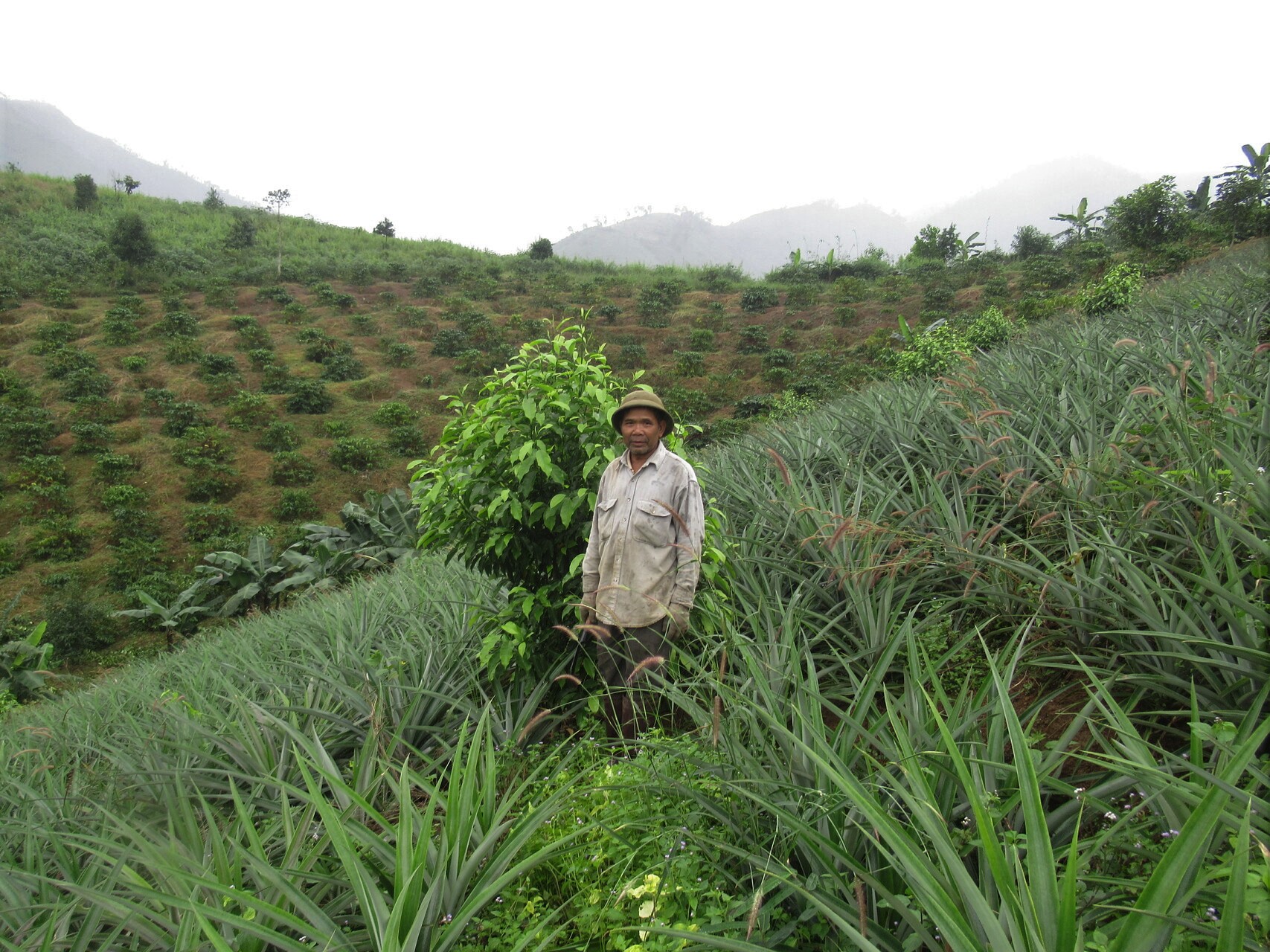
Achievements
The model has been well established and implemented in accordance with the following process:
Preparation and implementation:
- Further to the local authorities’ agreement, the plan and criteria for the selection of pilot households are discussed among communities.
- After cultivated crops are selected, pilot households are provided with seeds, and fertilizers and get technical support from agricultural extension officers.
Capacity building:
Different training courses are implemented such as the development of agroforestry models on sloping terrain, planting, and pest control. Pilot households are given the opportunity to learn from each other by sharing their experiences.
Monitoring:
Periodic monitoring and information exchanges are conducted to identify risks and draw lessons.
To explore more information about the effectiveness of these models, kindly refer to the following link.


